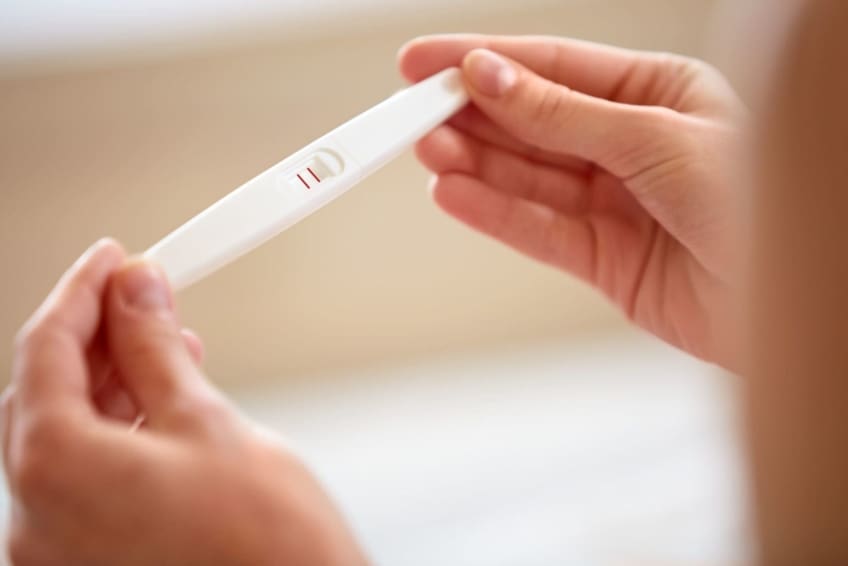
When a pregnant woman’s pregnancy ends on its own, this is called a miscarriage. It’s also known as a spontaneous abortion. When a woman chooses to end her pregnancy, it is called an induced abortion. There are two reasons why a woman would choose to end a pregnancy. One is for therapeutic reasons. This is done because the woman has a health condition in which pregnancy threatens her life. The other is called an elective abortion. This is done because a woman chooses to end a pregnancy for non-medical reasons.
There are 2 types of induced abortion:
- Medical – a woman takes medicine to end the pregnancy.
- Surgical – a woman has surgery to end the pregnancy.
These procedures are usually done in the first trimester (the first 3 months) of the pregnancy. A doctor or other health care professional performs the procedures. They are done in a hospital, doctor’s office, or health center.
Path to improved health
What is a medical abortion?
A medical abortion is caused by medicine. It is usually done in the first 10 weeks of pregnancy. The most common type of medical abortion uses a medicine called mifepristone. This is a pill that blocks progesterone, a hormone needed for pregnancy. It causes the lining of the womb (uterus) to become thin and break down. Other medicines used for this purpose include methotrexate, misoprostol, prostaglandins, or a combination of these medicines.
In general, this type of medical abortion is a 3-step process:
- A woman visits her doctor and takes the mifepristone.
- She comes back a few days later to take misoprostol. Misoprostol makes the uterus contract and empty. Many women have bleeding for about 2 weeks after taking misoprostol.
- After about 2 weeks, the woman returns to the doctor for a follow-up visit. Her doctor checks to be sure that the medicine was effective. Light bleeding or discharge (called spotting) may continue for several weeks.
The exact process will vary by state. States regulate how many times you’ll need to see the doctor and which tests he or she must perform.
What does medical abortion feel like?
For most women, medical abortion feels like a bad menstrual period. The bleeding will be much heavier than a normal period. They will probably have strong to severe cramps, diarrhea, or an upset stomach. These symptoms are normal. Acetaminophen (Tylenol) or ibuprofen (Advil, Motrin) can help relieve the cramps. But the doctor will want to know if any of the following occur:
- Bleeding through more than 2 sanitary pads in an hour.
- Fever above 100°F for more than 4 hours.
- Pain even after taking acetaminophen or ibuprofen.
How effective is medical abortion?
Mifepristone is about 97% effective. In rare cases when medical abortion doesn’t work, surgical abortion may be necessary.
What is surgical abortion?
Surgical abortion is when a doctor performs a procedure to remove the lining of the womb. There are 2 common procedures:
- Manual vacuum aspiration (MVA).
- Dilatation and evacuation (D&E).
Both procedures use suction to empty the womb. MVA uses a handheld tool. D&E is done with a suction machine and other tools. MVA is usually done in the first 12 weeks of pregnancy. D&E can be done after the first month of pregnancy and before the end of the 20th week. It is usually done during the second trimester.
Before the procedure, the doctor can give the woman medicine. This will help her feel calm. Then the doctor injects the area around the opening to the womb (called the cervix) with medicine. This makes the area numb. The doctor uses a tool or medicine to stretch open (dilate) the cervix. He or she then inserts a tube through the cervix and into the uterus. The tube is attached to a suction or vacuum pump. The contents of the uterus are suctioned out and emptied through the tube.
What does surgical abortion feel like?
For most women, surgical abortion feels like strong menstrual cramps. Women are often given medicine to help with the pain. They can usually go home as soon as an hour after the procedure. They are told to rest when they get home. Acetaminophen or ibuprofen can also help. Bleeding may continue off and on for a few weeks.
How effective is surgical abortion?
Surgical abortion is nearly 100% effective.
Things to consider
Are abortions safe?
When done by health care professionals during the first or second trimesters, both medical and surgical abortions are generally very safe. Serious complications are rare. Abortion generally does not reduce a woman’s ability to get pregnant in the future.
Women may feel many different emotions after an abortion, such as grief, relief, happiness, and sadness. There is no right or wrong way to feel after an abortion. Talk to you doctor about how you are feeling.
Questions to ask your doctor
- Which type of abortion is best for me?
- What will I experience during the procedure?
- Will I be given any anesthesia for a surgical abortion?
- How heavy will my bleeding be?
- How long will bleeding last?
- What are my options if a medical abortion doesn’t work?
- Should I talk to a counselor before or after the procedure?
Resources
National Institutes of Health, MedlinePlus: Abortion – medical
U.S. Department of Health & Human Services, Office on Women’s Health: Unplanned pregnancy
![]()
Copyright © American Academy of Family Physicians
This information provides a general overview and may not apply to everyone. Talk to your family doctor to find out if this information applies to you and to get more information on this subject.







